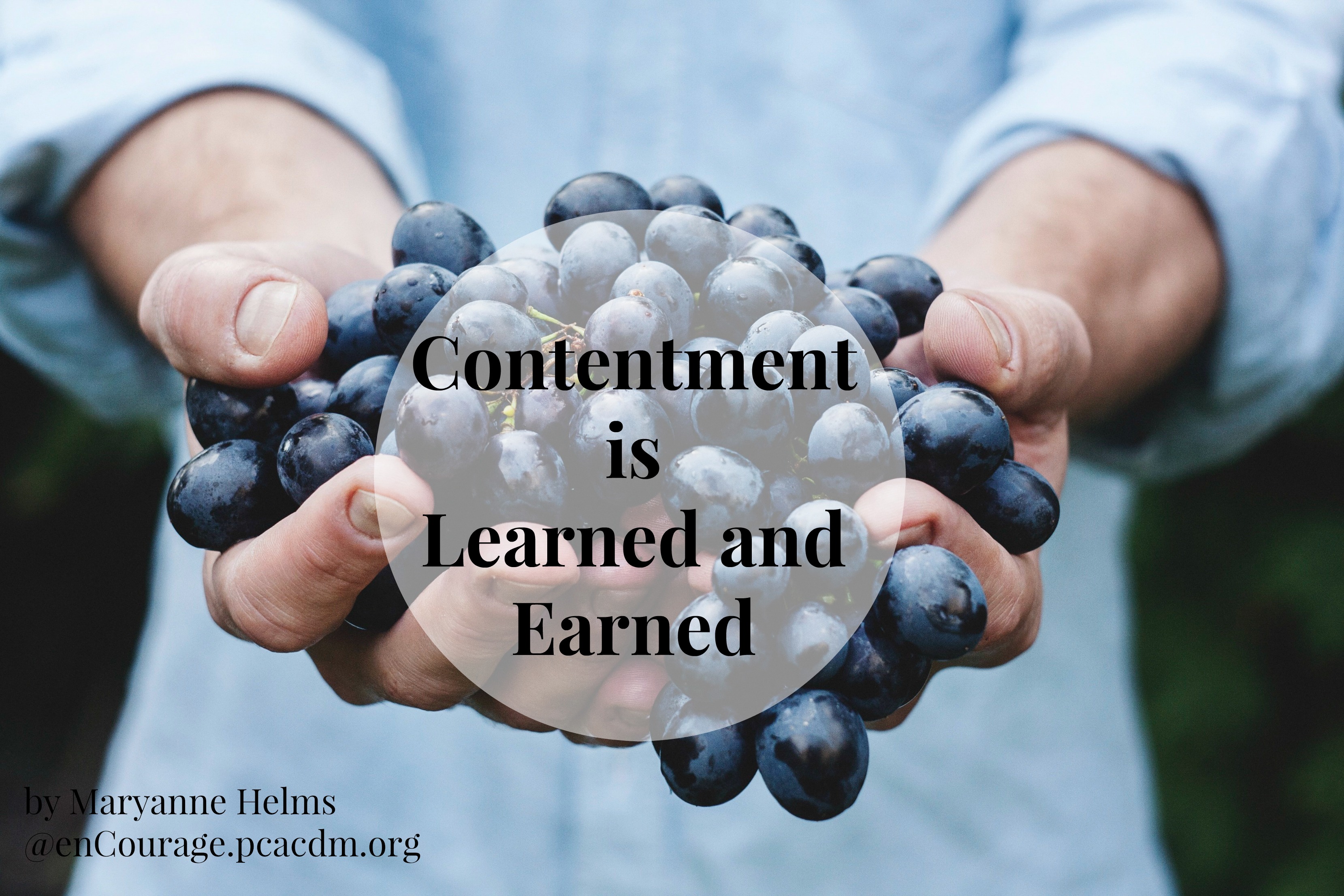MARYANNE HELMS|CONTRIBUTOR
I wish my toddler was better behaved.
I wish I were not so tired.
I wish my friends understood how lonely I am.
I wish my husband was more sensitive to my needs.
Do you ever find conversations like these drifting through your mind?
Do you find it difficult to be content?
I do. In fact, I think Christians would agree that contentment is perhaps the most difficult Christian virtue to practice. After all, in some semblance of my own strength, I can put on love. With enough intent, I can put on patience. And if I am simply mindful, I can even put on gentleness. But contentment is that evasive state that so often seems to lie just beyond grasp. Why is contentment so difficult to attain?
It is Learned
Simply stated, in order to gain contentment, we will first have to lose. And we are not a society that celebrates losing.
Just by way of reference, take a quick inventory of circumstances in which you have keenly wrestled with life satisfaction, and I guarantee that lurking in the darkness of your disappointment somewhere, is loss. Loss of friendship, loss of money or status. Loss of the marriage you envisioned. And in all of these unmet expectations and disappointments, you have struggled to find your way back to joy.
Scripture speaks clearly to the nature of contentment. In fact, one of it’s greatest heroes, Paul, lost everything. Imprisoned throughout his ministry, Paul was familiar with losing.
Five times I received from the Jews thirty-nine lashes. Three times I was beaten with rods, once I was stoned, three times I was shipwrecked, a night and a day I have spent in the sea.
Paul was a man schooled in the arena of doing without. In fact, his entire Christian career was marked by discouragement- from lack of affirmation of his public ministry to the years spent imprisoned for his faith. And yet it was from a filthy, dark prison cell that he penned these words:
I have learned in any circumstances, to be content.
Paul was not waiting to be free from his inconveniences before he proclaimed joy and embraced gratitude in his circumstances. He worshiped in spite of unfulfilled desires.
Contentment is Earned
Malcom Gladwell, author of the fascinating book, Outliers, refers to the rule of success for any task being the magical number of 10,000. It is in the astounding commitment of 10,000 hours that top musicians, artists and athletes, pull ahead.
What does this have to do with contentment? Well, the practice of contentment likewise, will take time. It is a virtue marked by hours of experience and discipline. Anything worth possessing is hard fought for, and a posture of satisfied joy is no exception.
Hear what Charles Spurgeon says about Paul’s suffering:
And when at last he had attained unto it {contentment}, and could say, “I have learned in whatsoever state I am, therewith to be content,” he was an old, grey-headed man, upon the borders of the grave–a poor prisoner shut up in Nero’s dungeon at Rome.
Lacking, and yet rejoicing. This was Paul’s life. This is your life, and mine.
We do ourselves a great disservice when we expect contentment. When we think it will come quickly and easily. When we wait upon our lists of needs to have check-marks beside them, before we declare ourselves satisfied. There is nothing deep about that sort of happiness.
Contentment is a study of “joy in the absence of”. For that reason, it will hurt. It will arise out of fierce pain and long nights of wrestling with God. But eventually, there will begin a recognition that what binds us, no longer does.
There will be peace .
Rejoice in those moments, and take note of who God is. He takes away, but He also gives. He empties, but He also fills.
He forces our surrender, so that we cannot help but state: I have learned to be content.
And in this, He is good. So very good.


